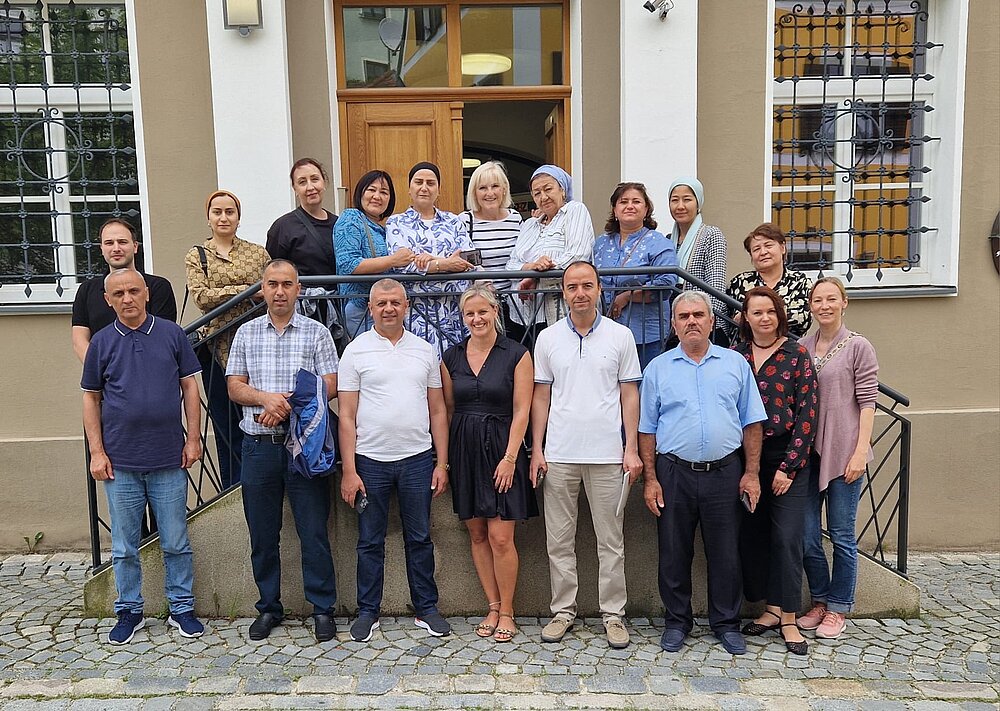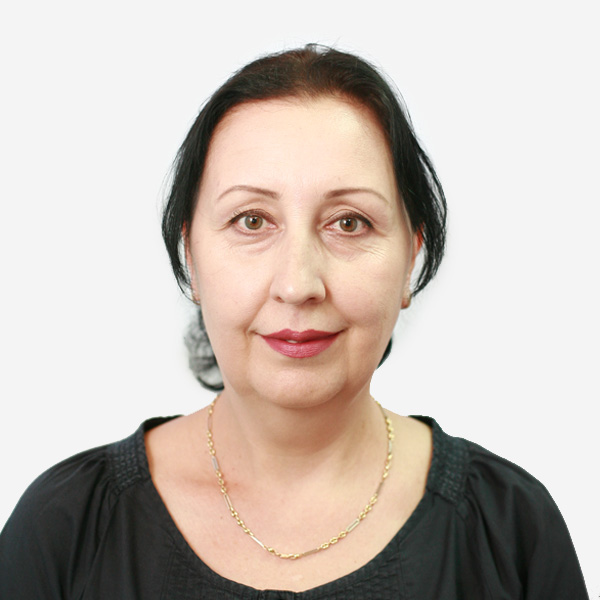From 15-22 June, thirteen experts from Tajikistan visited Bavaria to familiarise themselves with the work of Adult Education Centres (Volkshochschulen – vhs) in Germany and to exchange experience on methods and innovative approaches in the field of adult learning and education.
The group was represented by employees of the Ministry of Labor, Migration and Employment of the Republic of Tajikistan, the Employment Agency and Adult Training Centres, the Khukumat (local administration) of Khujand city, the public organisations “Tomiris” and “Saodat”, as well as employees of DVV International in Tajikistan.
On the first day, the participants had the opportunity to meet with the management and staff of the Bavarian Association of Adult Education Centres and the Munich Adult Education Centre. Here, they learned about the main areas of activity and the history of the establishment of Adult Education Centres in Germany. The main topics that greatly interested the Tajik experts were dual education and the integration of foreign students into the life and culture of Bavaria. The centralised system for collecting statistical data on the services provided by the Adult Education Centres particularly attracted their attention.
At the Munich Adult Education Centre, the participants were introduced to a programme focused on the development of intercultural competencies and vocational education for the integration of migrants. Currently in development is the project “Make it in Munich,” a pre-integration initiative with the following objectives:
- Overcoming language barriers;
- Promoting digital skills;
- Accelerating the integration process;
- Attracting a skilled workforce.
The project is open to citizens of non-EU countries who wish to move to Bavaria, and it aids them to receive vocational training, change their profession, or improve their qualifications. The beneficiaries of the programme are helped by qualified university experts to select a programme that facilitates a faster and easier integration into the life and environment of Bavaria.
Insights from adult education centres across Bavaria
At the Adult Education Centre of the Cham district, the study trip participants were introduced to networking in the field of adult education with government institutions at the regional level. The Adult Education Centre of the Cham district collaborates with over 50 organisations, including employers, the district administration, the Employment Agency, and others. Its annual turnover averages 7 million euros, with 85% being self-financed and 15% coming from the district budget. In particular, the acquisition of third-party funds for projects contributes to the centre’s financial self-sufficiency.
The Adult Education Centre in Weiden – a regional education hub – provided further valuable insights: Educational Director Tanja Fichtner shared her experiences on intercultural mediation for migrants, and Educational Programme Manager Fatma Falfoul discussed approaches to the recognition of educational qualifications. This information was particularly important for the Tajik experts because Tajikistan is just beginning to establish this system. Additionally, a meeting was organised with the “integration pilots” from the districts of Tirschenreuth and Neustadt. Issues relating to municipal coordination of local volunteer networks for the integration of migrants were discussed during the meeting.
In order to study the practice of cooperation among adult education providers in vocational education, the participants visited vocational schools in the Cham district. The school in the city of Furth im Wald offers courses in social pedagogy and childcare, while the vocational school in Bad Kötzting provides courses in elderly care.
In Neutraubling, the participants familiarised themselves with the activities of the Adult Education Centre of the Regensburg district and met with Executive Director Roswitha Hierl and staff. This institution employs 360 staff members, and 10% of all courses (approximately 1300-1400 courses per year) are conducted through online platforms. Annually, the Adult Education Centre serves up to 15,000 students and collaborates closely with agencies responsible for refugee affairs, social services, and employment.
The exchange with German colleagues from different adult education institutions was a great learning experience for participants on both sides. The experts from Tajikistan emphasised that the experience gained from this trip will contribute to:
- Providing enhanced educational services to various target groups;
- Improving communication and collaboration with governmental entities in promoting the concept of Community Learning Centres (CLCs);
- Enhancing the curriculum of adult education centres and Community Learning Centres;
- Providing participants with opportunities to utilise the experiences of other countries and, in turn, share their own experiences.




